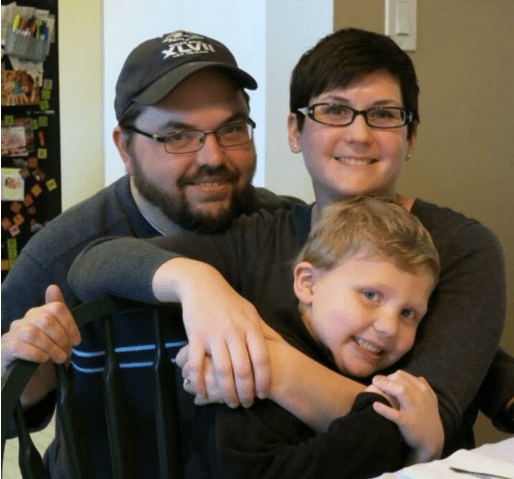When I first met my wife she was invisible. Sometime after her bipolar diagnosis she was led to believe that her illness was not something to be discussed, it was something to be ashamed of. Most people that knew her diagnosis tried to be supportive of her “moodiness” offering her advice like: “If you find a good man, you won’t be unhappy anymore” or “If you went to church more and prayed more, you wouldn’t be depressed.” There were others who couldn’t see past the word bipolar disorder and disappeared from her life. So she started hiding behind the shadow of her illness, believing that she was unworthy of love and friendship, her voice silenced by the belief that her thoughts and opinions were somehow less important than everyone else’s. She kept her secret from her coworkers and friends. She switched jobs and relationships often, usually after an episode occurred, unable to face the people that may have witnessed it And while she trusted me enough to tell me, she still did her best not to let me see how “messed up” she was, fearing that if I saw the real her I would leave, too.
No one should be made to feel invisible, to feel like they are something less than the rest of us. My wife is not a statistic or a label. She is not her illness. She is a just a person like the rest of us struggling to find her place in the world.
Unfortunately, we live in a world that often turns a blind eye to social issues that are unpleasant or can’t be resolved with a quick fix. We live in a world where people often tend to fear what they don’t understand. But it doesn’t have to be that way.
It took a long time for Beka to realize that she was allowing bipolar disorder to control her identity. I started to see a change after the birth of our son. She didn’t want him to ever feel like he needed to hide who he was. She wanted to be his hero.
So she started taking an active interest in her treatment and allowed me to be a part of it. She switched doctors until she found one that was really knowledgeable on her illness and the various medication options. She went back to school and finished her Bachelor’s degree after 10 years of stopping and starting. Then she started graduate classes. She fought the urge to quit her job every time there was a problem and has now been working at the same place for over 10 years. She started openly talking about her struggles with bipolar disorder and was surprised to find that most of her coworkers and friends were really supportive. She found her voice and, more than that, she found herself. She is not looking for pity or for praise. She just wants to be accepted for who she is. And she is not alone.
In the United States, there are over 5 million people walking among us that live with bipolar disorder. Some are doctors, some are lawyers or actors or musicians. Some are stay-at-home moms. Some own their own business. They come from all walks of life. It could be a family member, a friend, a neighbor, or a coworker. They are joined together only by the illness that they share and the stigma that surrounds it.
But it doesn’t have to be that way. As a society we have the ability to shape the world we want our children to grow up in. Together we can break the stigma. I believe that change can be contagious. One voice can lead to 100 then 1,000. All it takes is for each of us to find our voice. Be a light in the darkness. Find the courage to share your story or listen to someone else’s. Ask questions. Educate yourself or others. Become an advocate. Let the world see that who you are is so much more than the illness you have.
Break the stigma by participating in World Bipolar Day. Submit your photo or video by March 15 at https://ibpf.org/worldbipolarday


